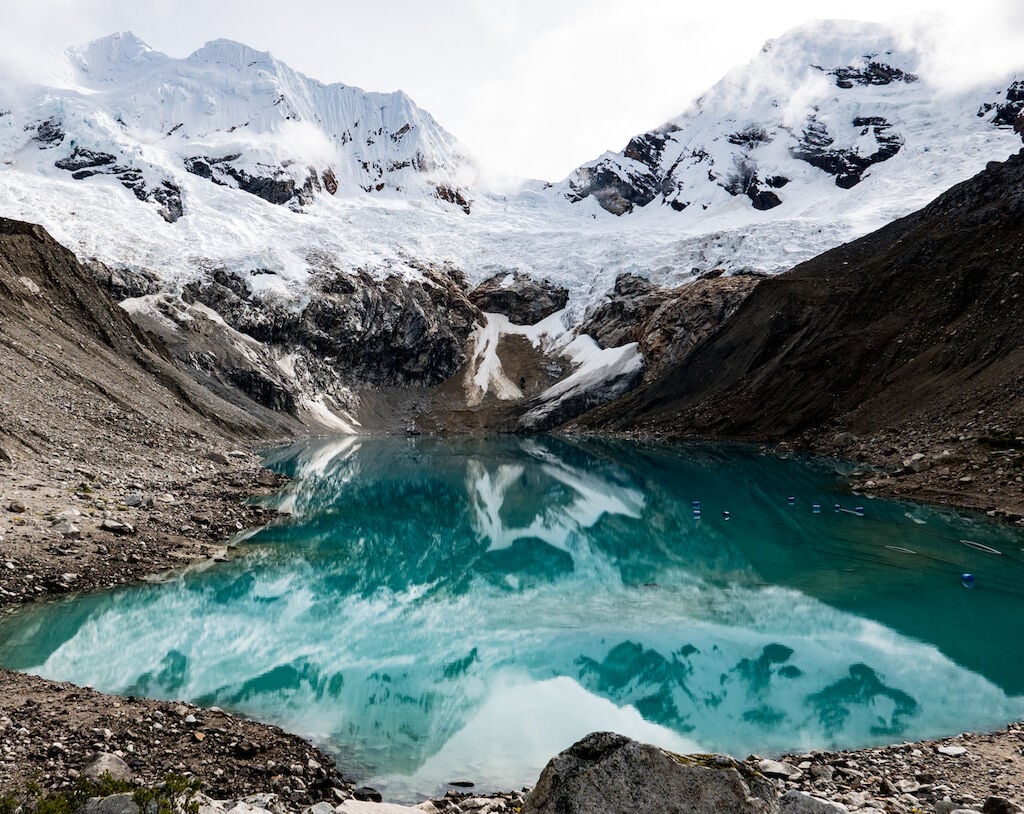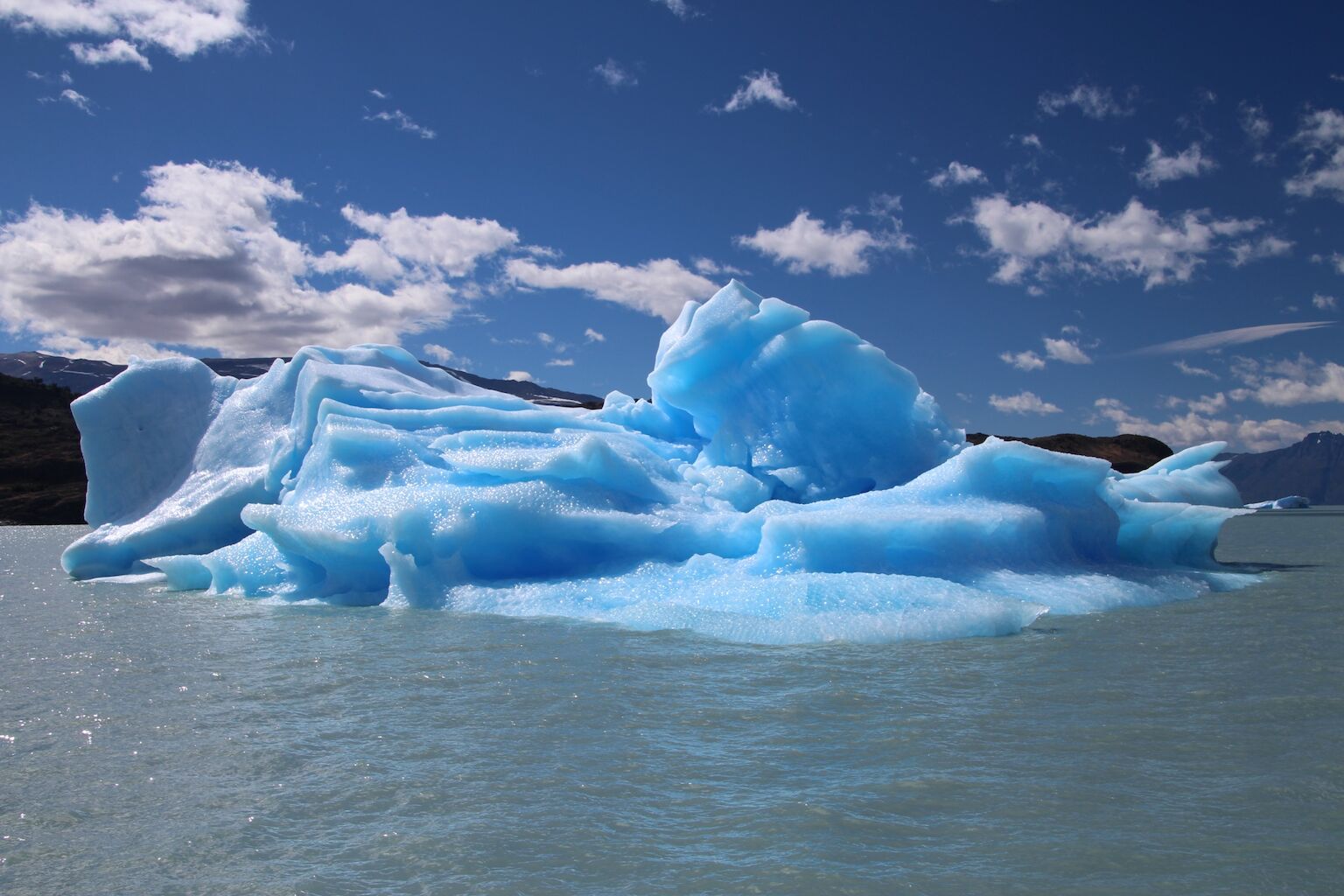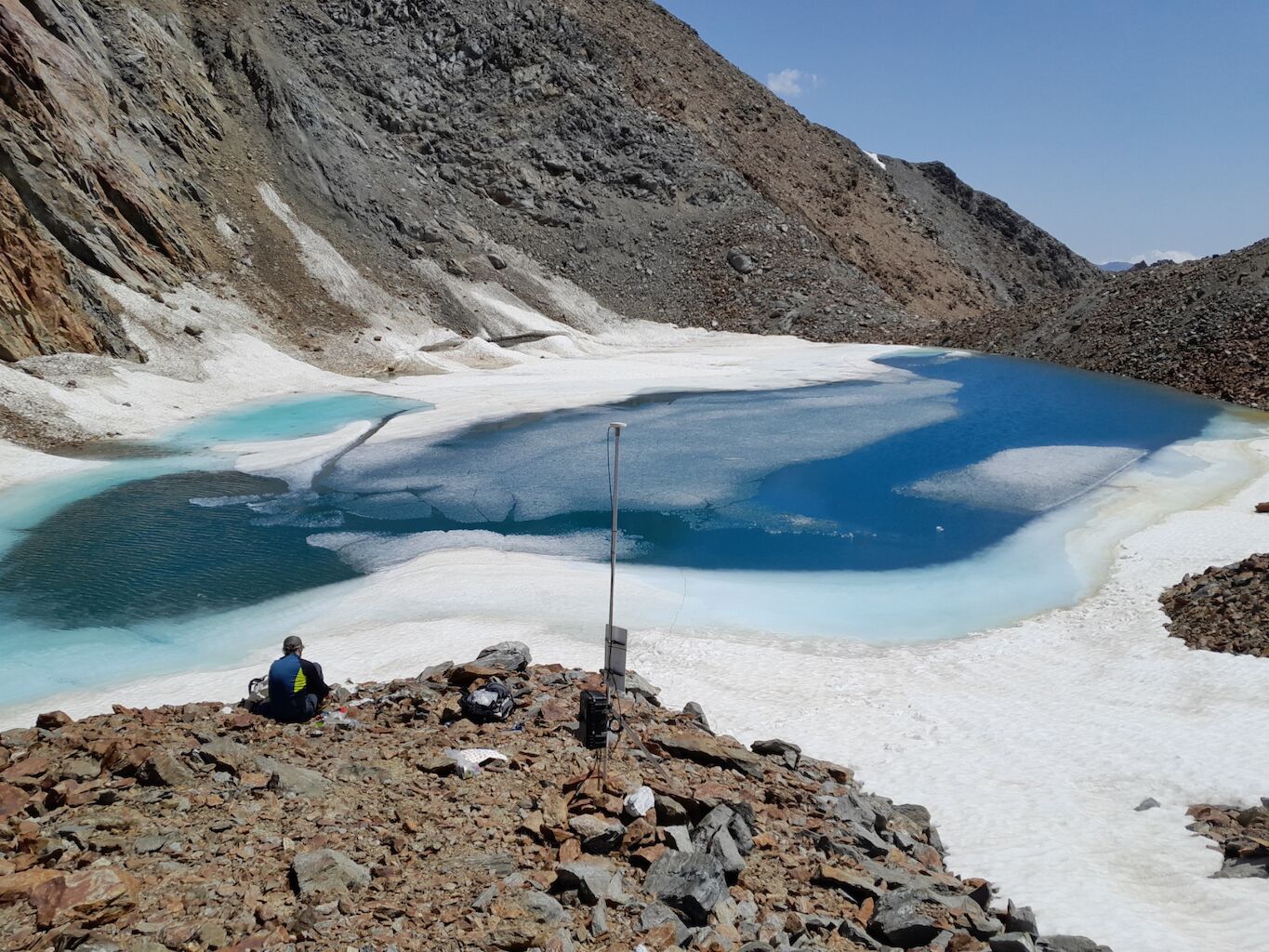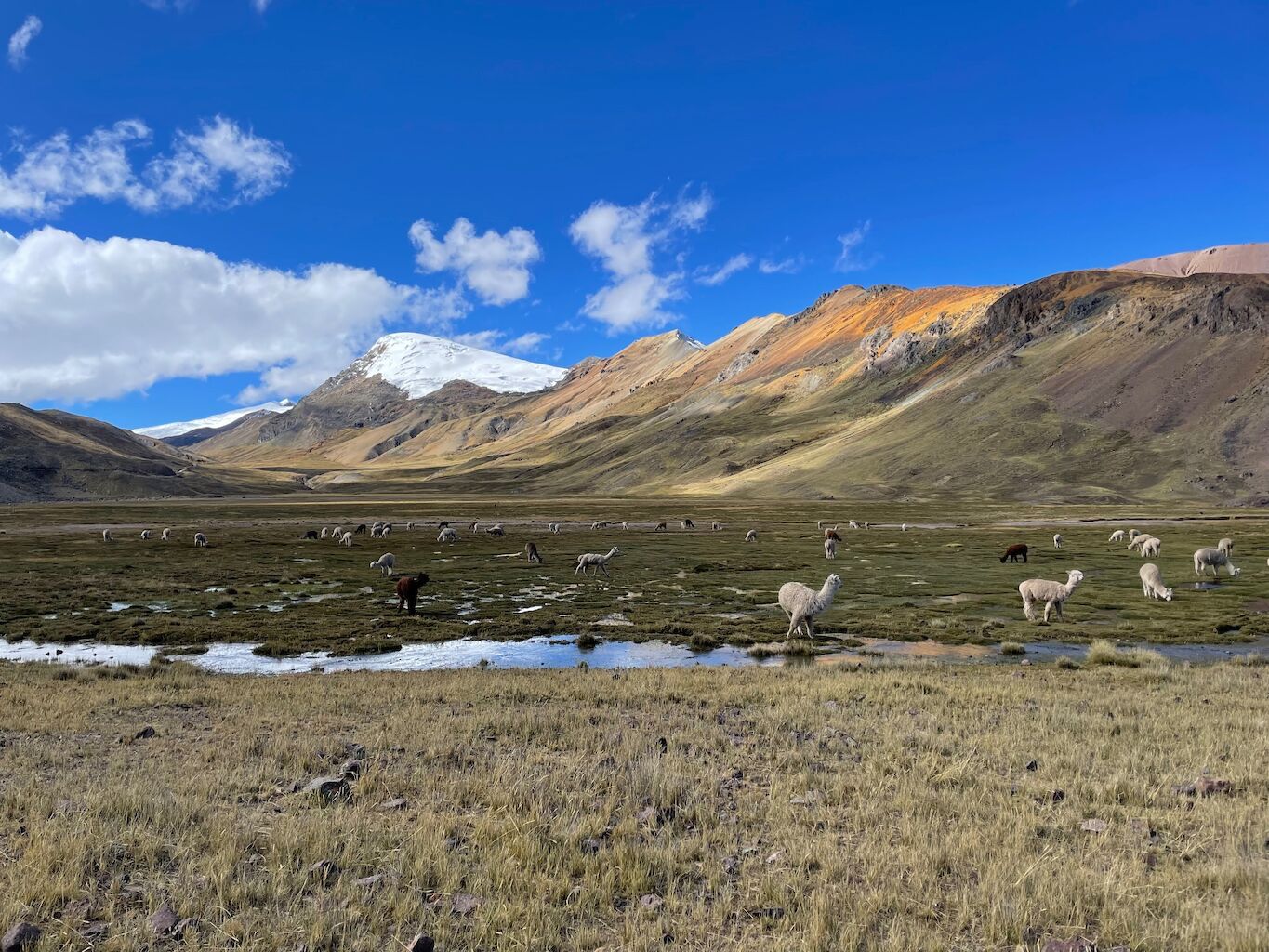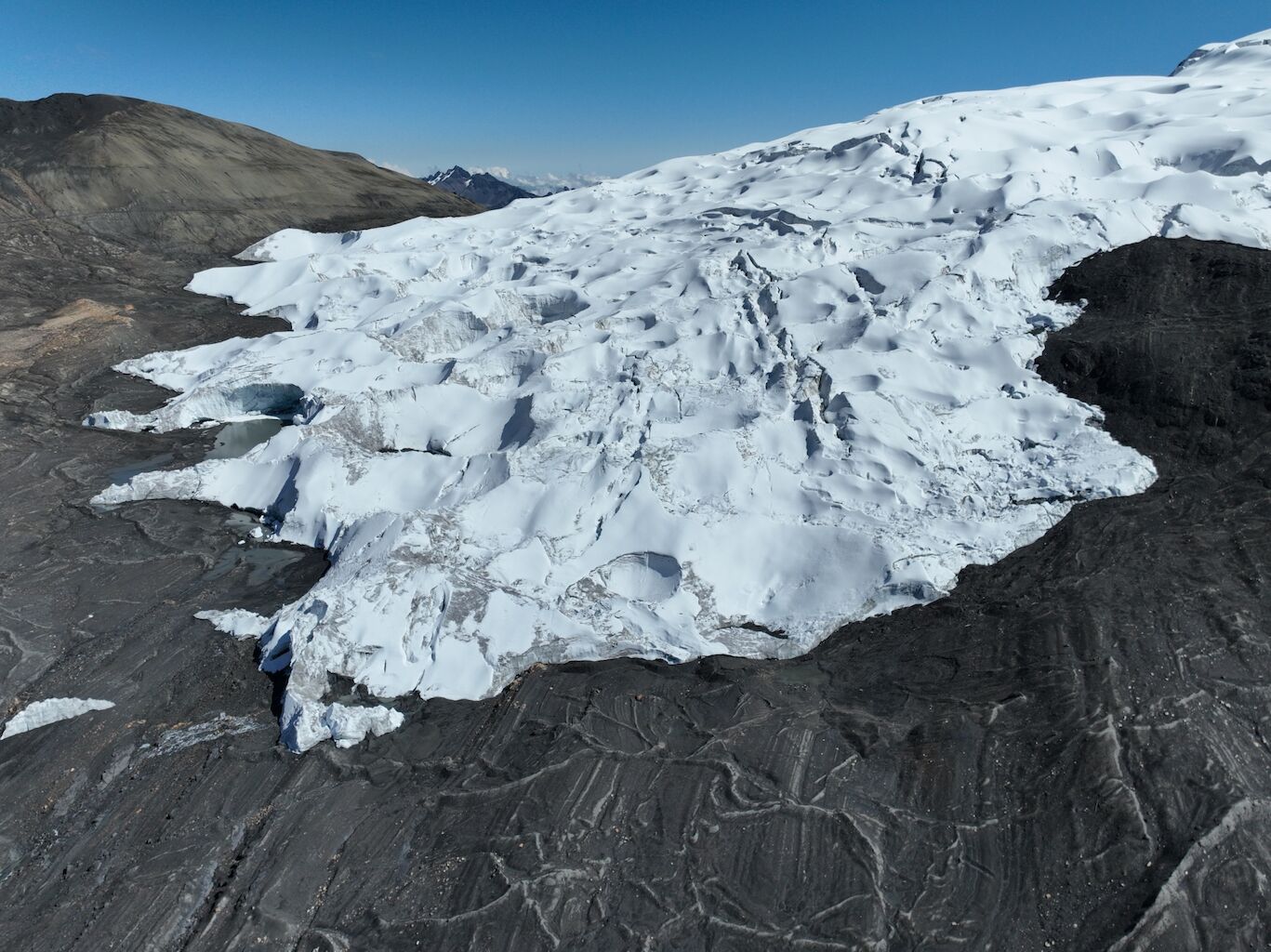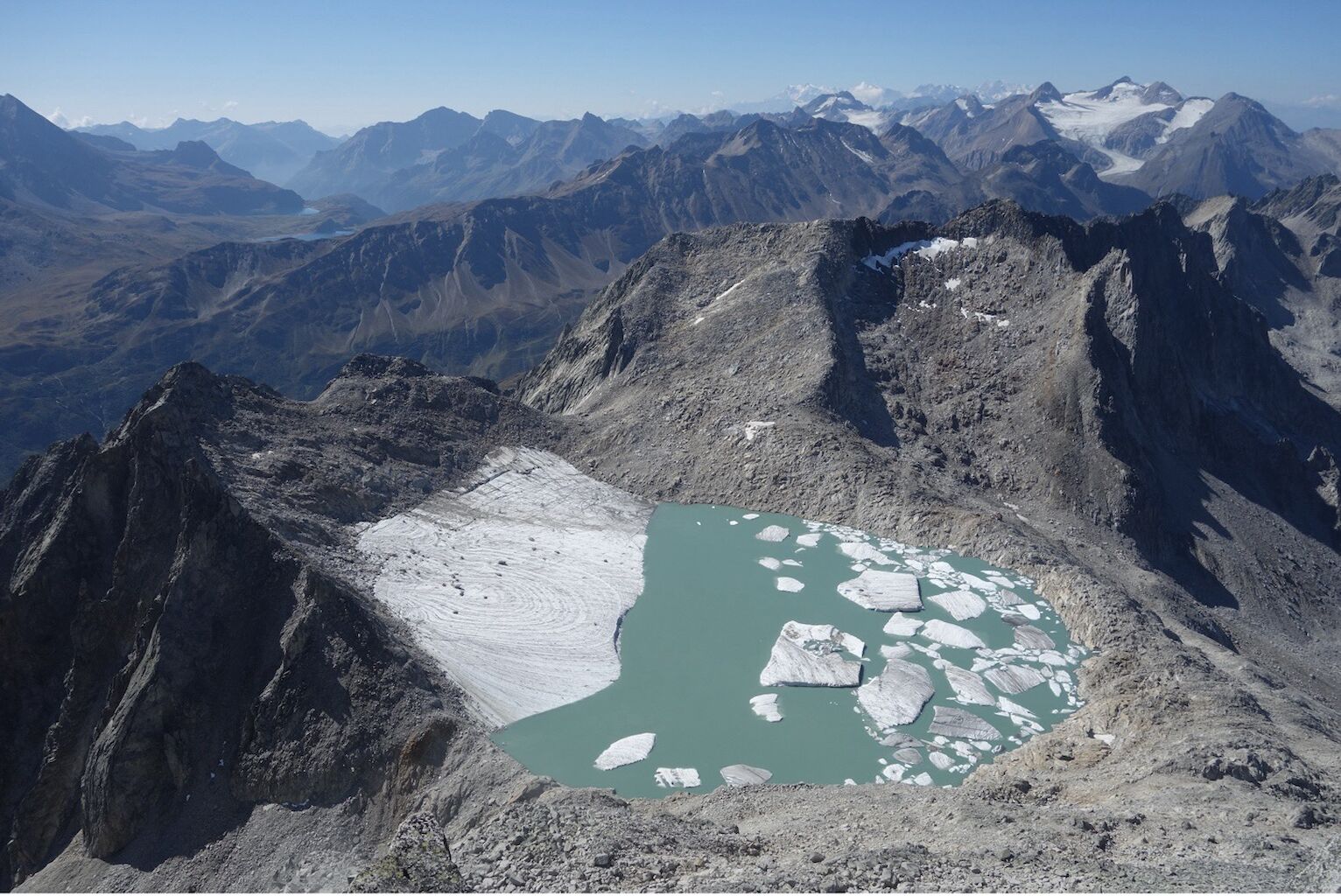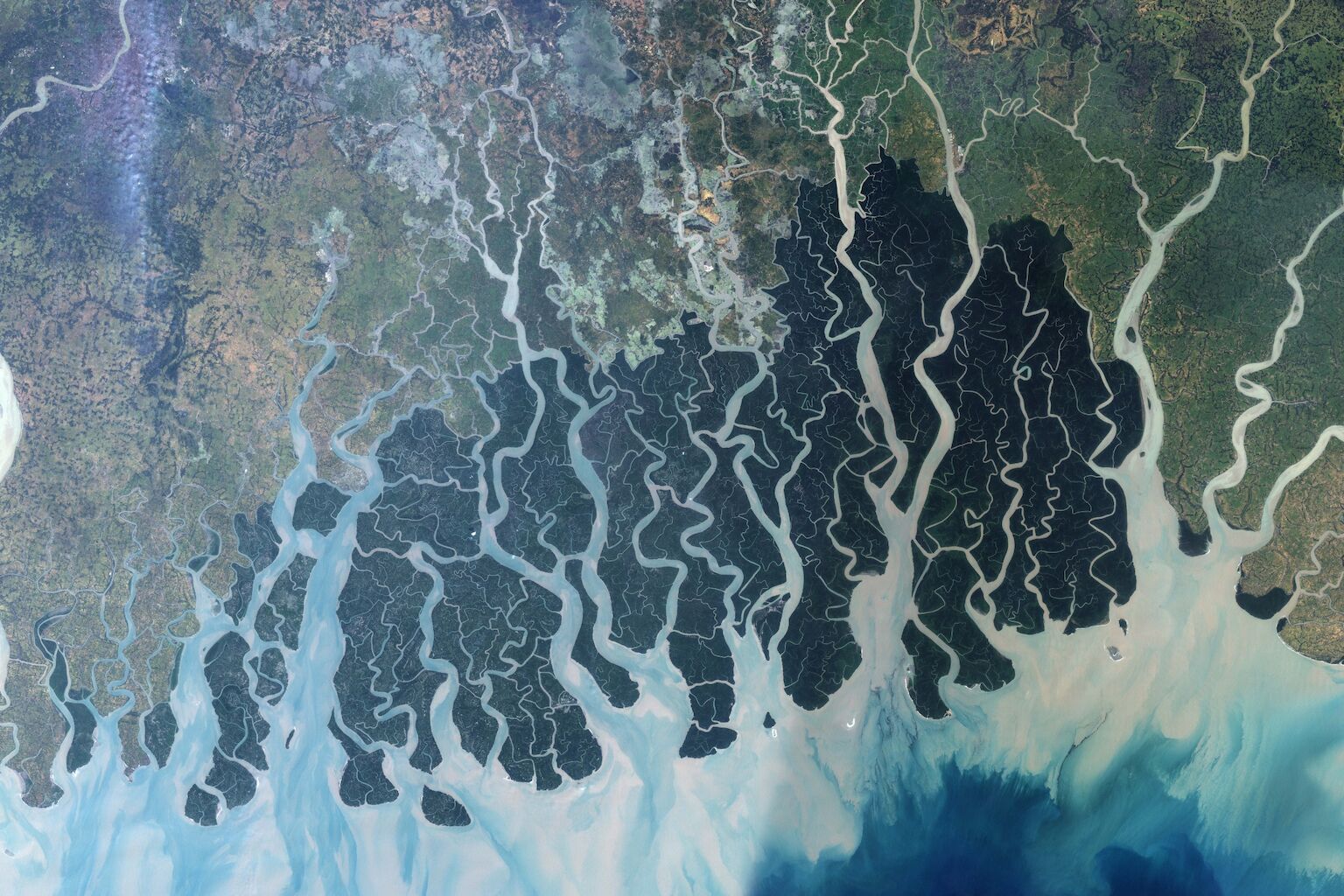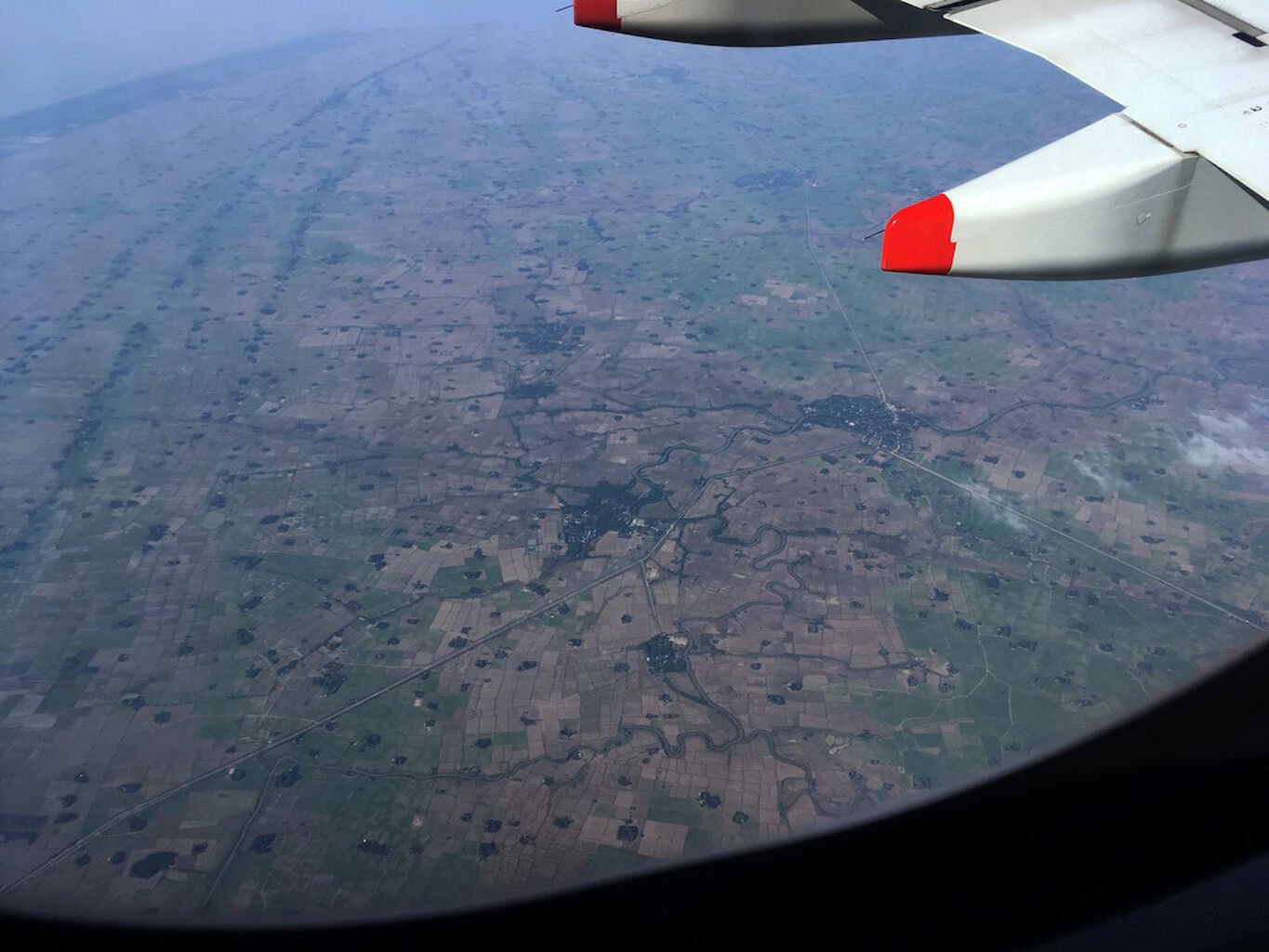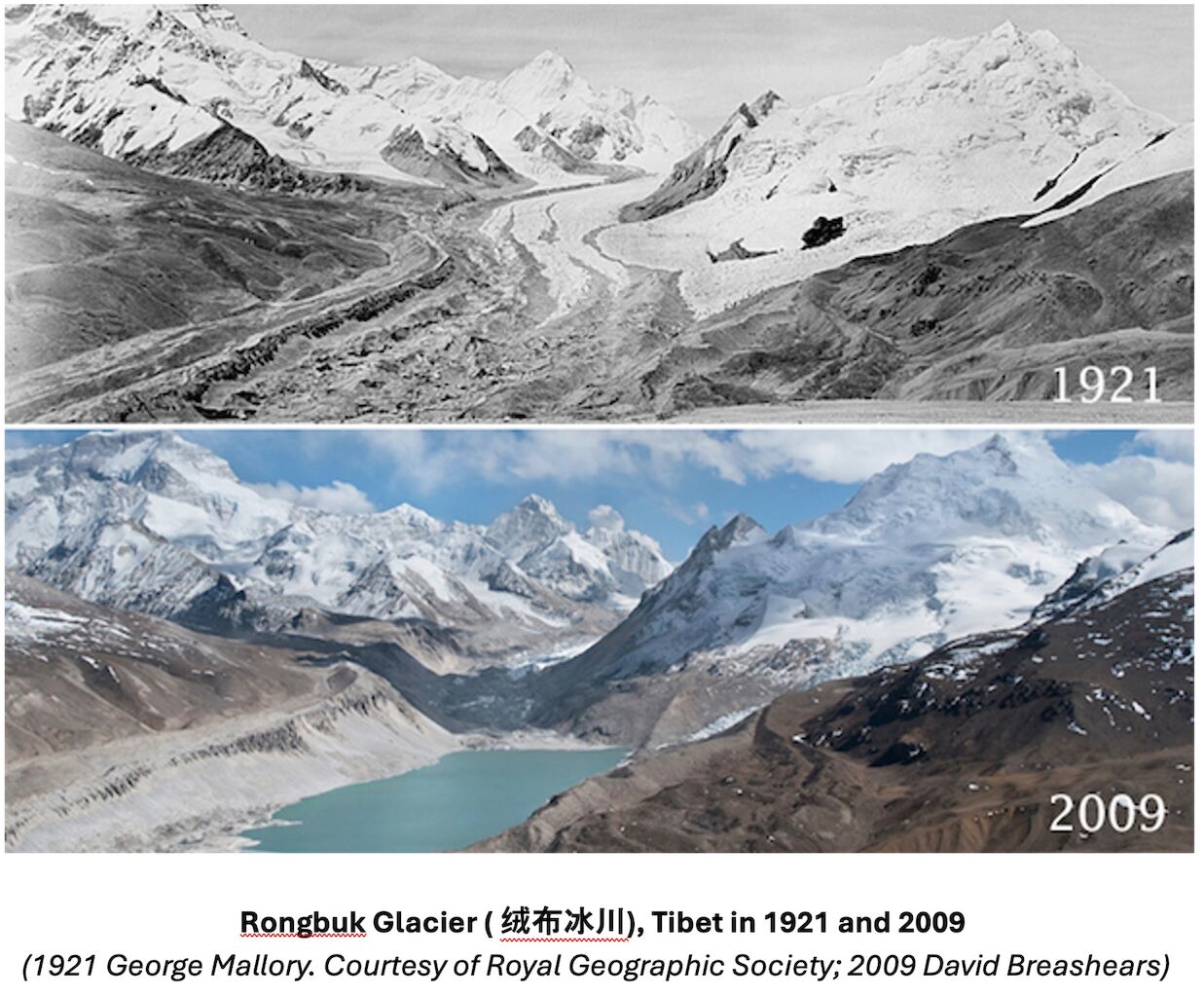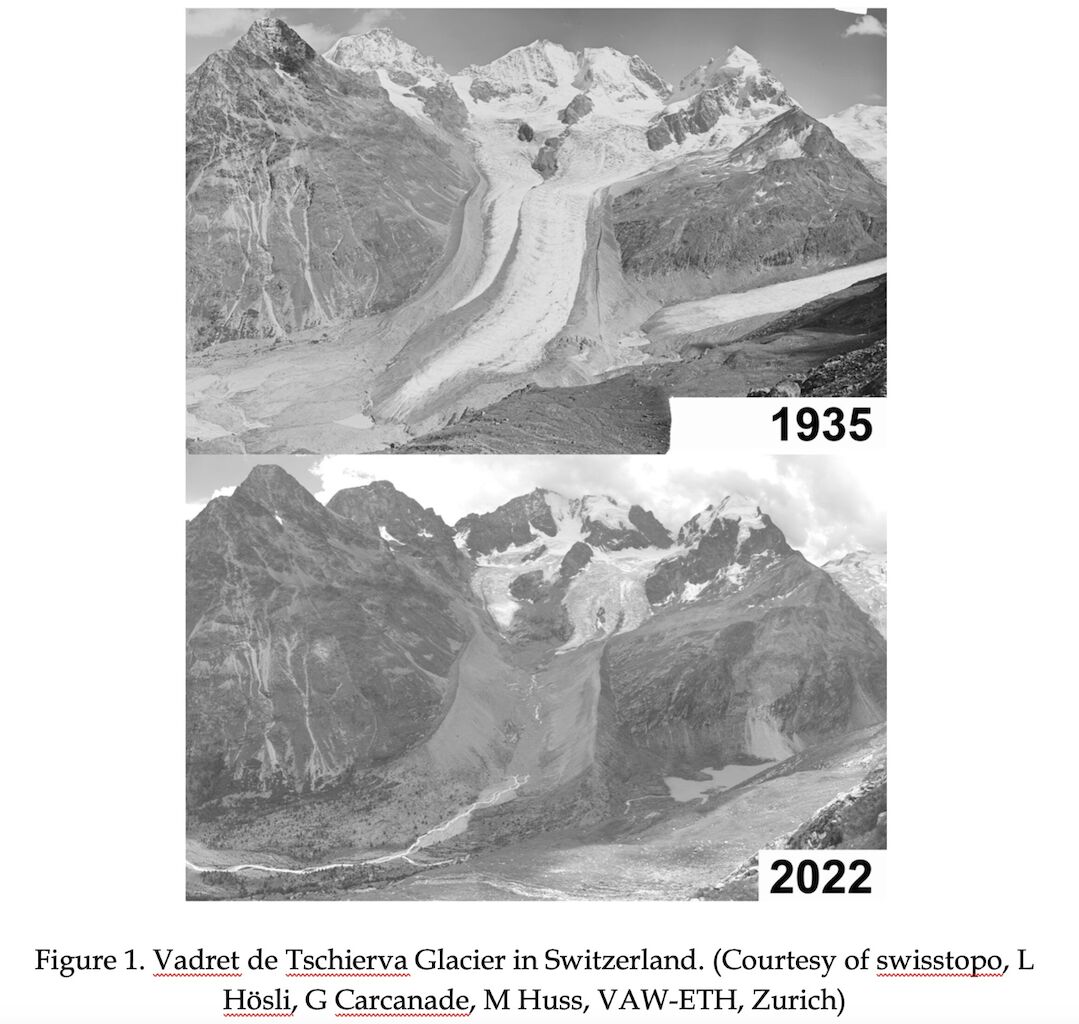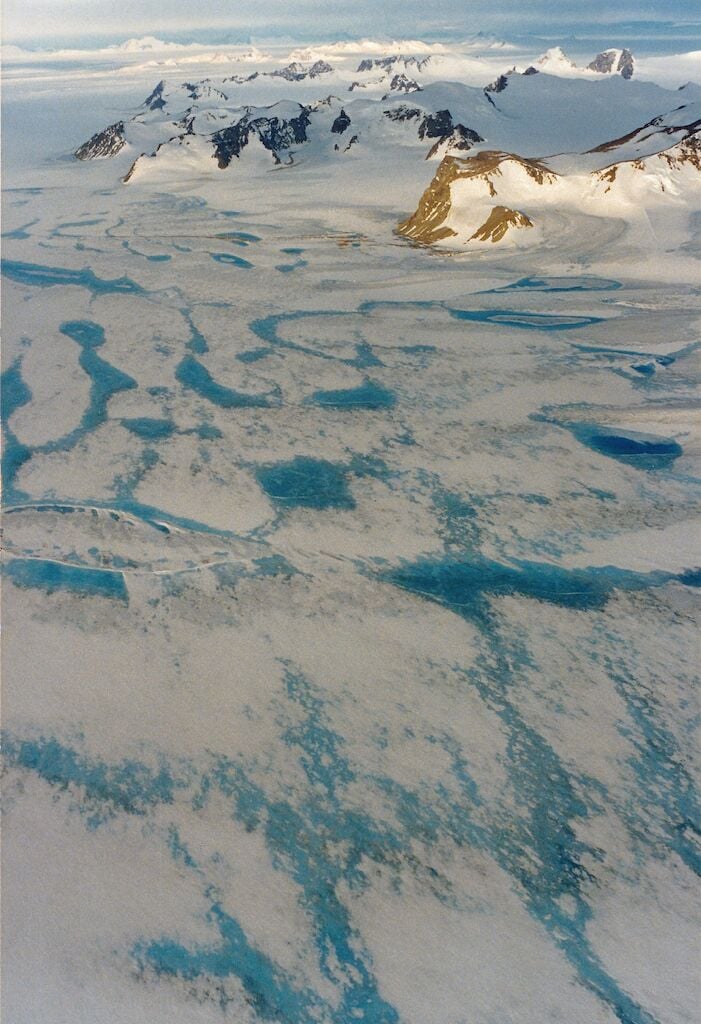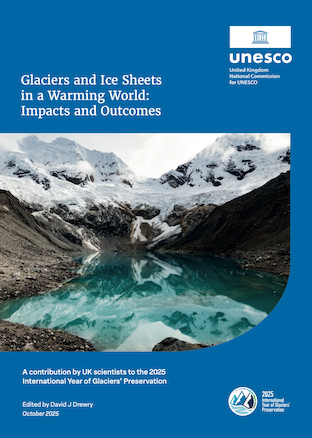The findings are stark: glaciers have lost more than 6,500 billion tonnes of ice since 2000, threatening the water supply of over a billion people. This represents a 36 per cent acceleration in the past decade, with glacier water now contributing roughly one-third of global sea-level rise.
Edited by Professor David J. Drewry, former Director of the British Antarctic Survey and Vice-Chair and Director for Natural Sciences at the UKNC, the report unites new findings from universities across the UK. This includes contributions from leading British scientists who work in partnership with international teams in glacier regions from the Andes and Himalayas to the Arctic and Antarctic.
Drawing on decades of satellite observations, field expeditions, and climate modelling, the report paints a vivid picture of a rapidly changing planet. Glaciers are reshaping landscapes, threatening water supplies, and intensifying hazards from floods to sea-level rise. Yet it also shows how UK scientists are pioneering new ways to monitor, model, and adapt to these changes, giving decision-makers the evidence needed to safeguard the communities and ecosystems that depend on ice
Professor David, J. Drewry, Editor of the report, said:
"The science is unequivocal: glaciers are retreating faster than ever recorded. Data and monitoring are vital, but only a rapid cut in global greenhouse-gas emissions can stem their long-term loss. In the meantime, adaptation planning has become critical."
Lídia Arthur Brito, Assistant Director-General for Natural Sciences at UNESCO, said:
“Glaciers play an essential role in sustaining ecosystems, regulating climate, and securing water resources for billions of people. I commend the UK National Commission for UNESCO for its leadership in publishing Glaciers and Ice Sheets in a Warming World, which makes a valuable contribution to the International Year of Glaciers’ Preservation and the Decade of Action for Cryospheric Sciences.”
Anna Nsubuga, UK Ambassador to UNESCO, said:
“The UK is proud to stand alongside UNESCO and the global scientific community in responding to one of the most visible frontlines of climate change. This report demonstrates the strength of British science and our commitment to international cooperation. By sharing data, knowledge, and innovation, we can help protect the glaciers and the communities that depend on them."
James Bridge, Chief Executive and Secretary-General of the UK National Commission for UNESCO, said:
“The story of the world’s glaciers is one of the clearest signals of our changing climate, and a reminder that science, policy and society must act together. This report contributes to the body of British research on the global stage, helping shape the knowledge, partnerships, and practical solutions needed to safeguard people and the planet."
UNESCO, founded 80 years ago following the Second World War, exists to foster understanding between people and countries, aiming to help prevent conflict. This work is part of this - turning scientific understanding into cooperation and collective action.”
From Alaska to Antarctica
Contributions from the British Antarctic Survey and the Universities of Birmingham, Bristol, Durham, Edinburgh, Imperial College London, Liverpool, Newcastle, Sheffield, and others document rapid glacier retreat from the Andes to the Himalayas and polar ice loss from Greenland to West Antarctica.
New satellite missions such as CryoSat-2 and the GlaMBIE global monitoring initiative, both led by the UK, are providing the most precise picture yet of glacier decline, helping the world track change and plan for resilience.
A call for global cooperation and practical action
The International Year of Glaciers’ Preservation (IYGP 2025), proclaimed by the UN General Assembly and coordinated by UNESCO and the World Meteorological Organisation (WMO), highlights that significant glacier loss is now inevitable, but its scale and consequences depend on the decisions taken this decade.
The report calls for urgent, coordinated global action to both mitigate further loss and adapt to the changes already locked in. It emphasises that:
- Rapid, sustained emission cuts remain the only route to stabilising temperatures and slowing glacier retreat.
- Adaptation planning must begin now for glacier-dependent communities, including the development of early-warning systems, flood preparedness, community relocation, water-resource modelling, and transboundary cooperation across shared river basins.
- Continuous monitoring and open data are critical. Many current satellite missions will end this decade without confirmed successors, risking a “blind spot” in our ability to track global changes.
- Finance and governance mechanisms must integrate glacier and snowpack indicators into the Global Goal on Adaptation and national climate plans under the Paris Agreement.
- Knowledge-sharing between mountain and polar regions, from the Andes to the Himalaya to the Arctic, should be expanded through UNESCO networks, Living Labs, and collaborative research programmes and drawing upon the lived experience of indigenous people.
The report reinforces the UK’s position as a global leader in glaciological research, contributing world-class science to UNESCO’s global agenda on climate and sustainability.
UK scientists are collaborating with partners across Europe, the Andes, and the Himalayas to integrate glacier data into the UN Global Goal on Adaptation, enhance resilience planning, and support UNESCO’s mission to promote peace through science.
Download the press release here
Glaciers and Ice Sheets in a Warming World: Impacts and Outcomes (UK National Commission for UNESCO, 2025) is available open access under Creative Commons BY-NC-SA 4.0 at www.unesco.org.uk.

